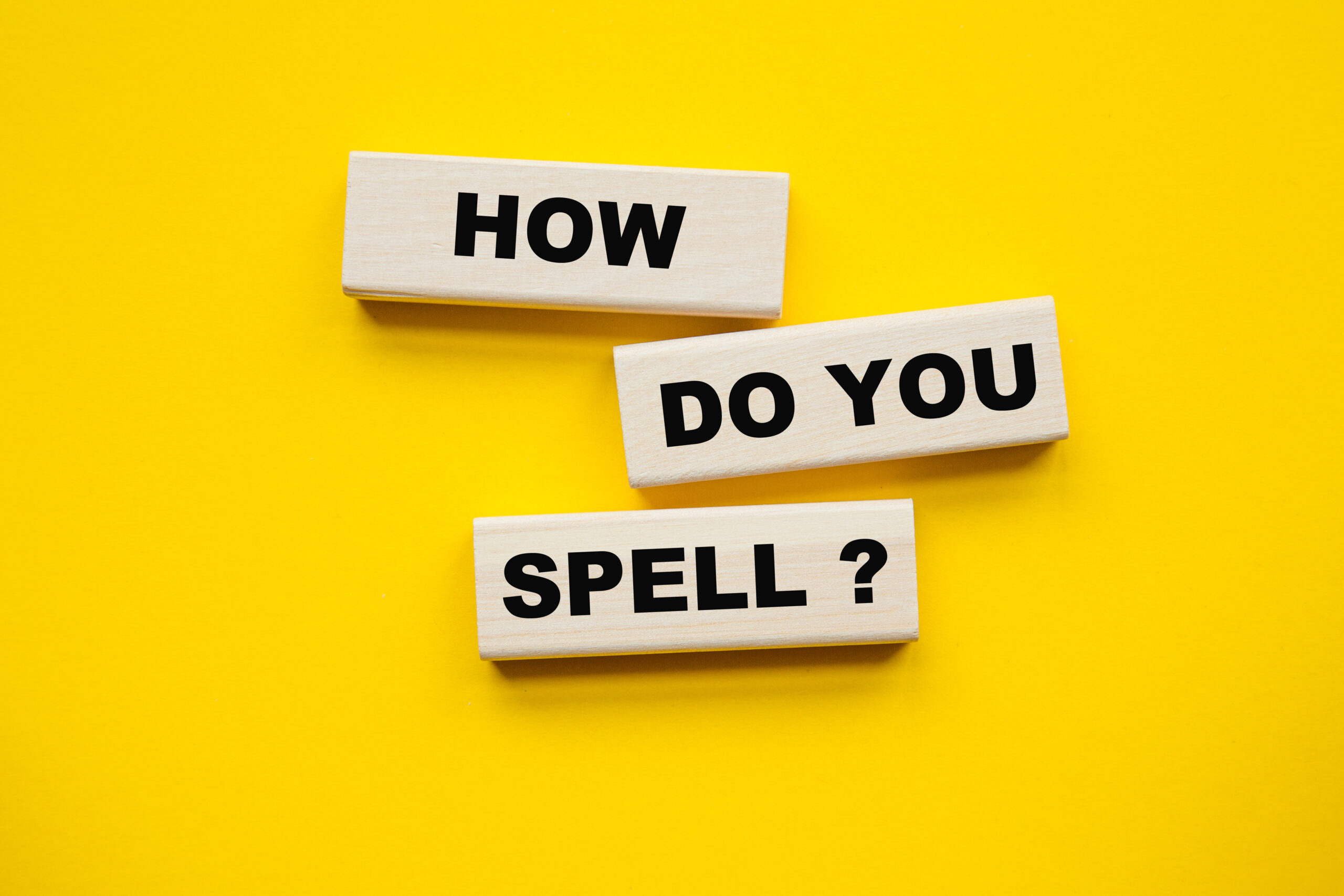
You might even forget to buckle up for this trip to the past because it’s only one year ago. The post is all about logos (aural and visual) and brands and the way we so frequently change them up.
I was reminded of this last week when we put together the announcement for the Jacobs Media 2025 CES Tour. We came across a new logo for the event recently released by the Consumer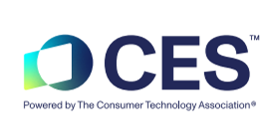 Technology Association. And as often happens, we began to debate its pros and cons. I think that’s what marketers often do when something brand new is unleashed on us, especially when the first blush reaction is, “Why did they bother to change it?”
Technology Association. And as often happens, we began to debate its pros and cons. I think that’s what marketers often do when something brand new is unleashed on us, especially when the first blush reaction is, “Why did they bother to change it?”
While posting this #TBT blog, I ran across two resources you might find interesting. The first was an article from “How Brands Are Built” by Rob Myerson. He broke down “The best and worst brand name changes of 2021” (I didn’t see anything more recent).
 In that story, we see some amazing examples on both sides of the ledger. Perhaps the worst was Aunt Jemima trying to put an end to its long-running racial controversies and shifting to the banal and weird Pearl Milling Company (?). Utterly forgettable.
In that story, we see some amazing examples on both sides of the ledger. Perhaps the worst was Aunt Jemima trying to put an end to its long-running racial controversies and shifting to the banal and weird Pearl Milling Company (?). Utterly forgettable.
Along the way, Rob included a highly useful graphic I’m calling “The Wheel of Good Brand Names.”
In one fell swoop, you’ve got a thorough checklist of questions to ask about that new brand/new logo you’ve fallen in love with. It’s comprehensive and checks all the right boxes:
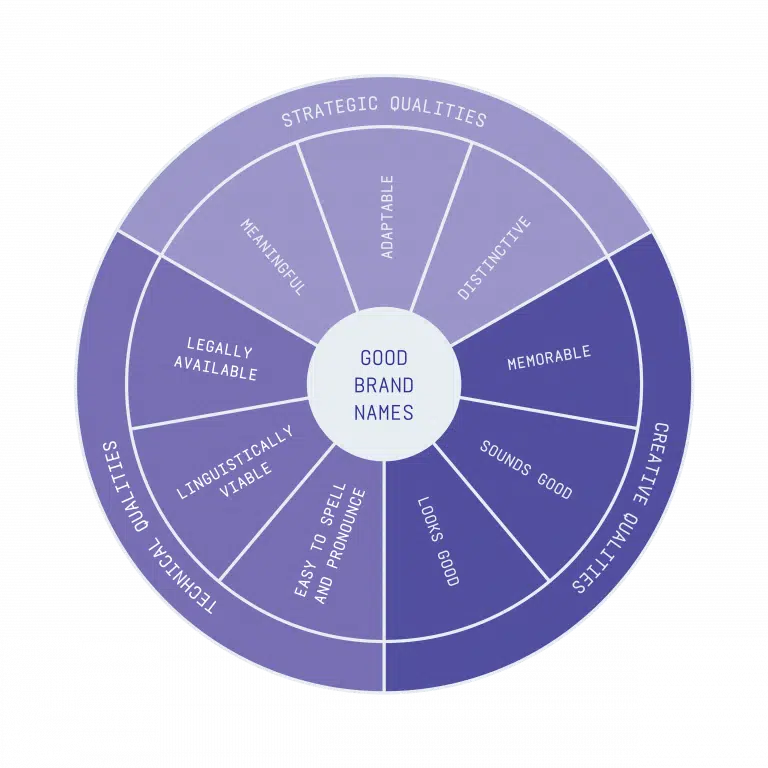
Maybe instead of new brands and logos passing “the spell test,” we’ll think of it more in terms of “the wheel test” moving forward.
Whether you’re in a world of diaries or meters, the wheel does the job. You might also want to check out a site called “Brand New” that not only dynamically reports on brand/logo changes, but also evaluates them through consumer ratings. -FJ
September 2023
These days, when you mention the term, “Spelling Bee,” many avid online gamers think about the New York Times daily challenge of the same name. Their “Spelling Bee” game was developed by Frank Longo for the Times back in 2014 from a suggestion by “puzzle master” Will Shortz. Millions of game enthusiasts play it every morning.

I should know – I’m married to one of them who is actually part of a group that plays together.
It’s a wildly successful game, now packaged with “Wordle” and “Connections” on the Times’ s subscription platform aptly named “Games.” The Times does not release revenue data for its subscription offers, but the combination of “Cooking,” “Games,” and related offerings has accounted for robust gains in recent years.
And perhaps another unforeseen benefit of these games is that we may be becoming better spellers as a result of playing them. And apparently, we’re going to need to up our spelling skills if we hope to have success locating brands on the web and in app stores.
A recent AdWeek story by Robert Klara provided lots of examples of brands that confused their customers with odd spelling of names. In a story aptly titled “Proud of your Brand’s Offbeat Spelling? Maybe You’d Better Check the Dictionary,” he makes the case that a hard-to-spell brand can lose out to businesses in an ecommerce search.
A study commissioned by digital wholesale platform Joor (wait…what?) revealed even well-known brands get caught up by spelling errors by customers. Tommy Hilfiger and Louie Vuitton are regularly botched by those who know and love these designers.
and Louie Vuitton are regularly botched by those who know and love these designers.
And Joor reports the most misspelled brand name is Adidas, often spelled “Addidas” or Adias” by confused customers. In Adidas’ case, Joor reports 556,000 errors per month. And those mistakes add up, in lost business and brand weakness.
Sometimes brands just get too clever for their own good by coming up with a name that has unusual spelling. And as Klara points out, the need to secure domain names often pushes companies to seek out odd, alternative spellings to common words.
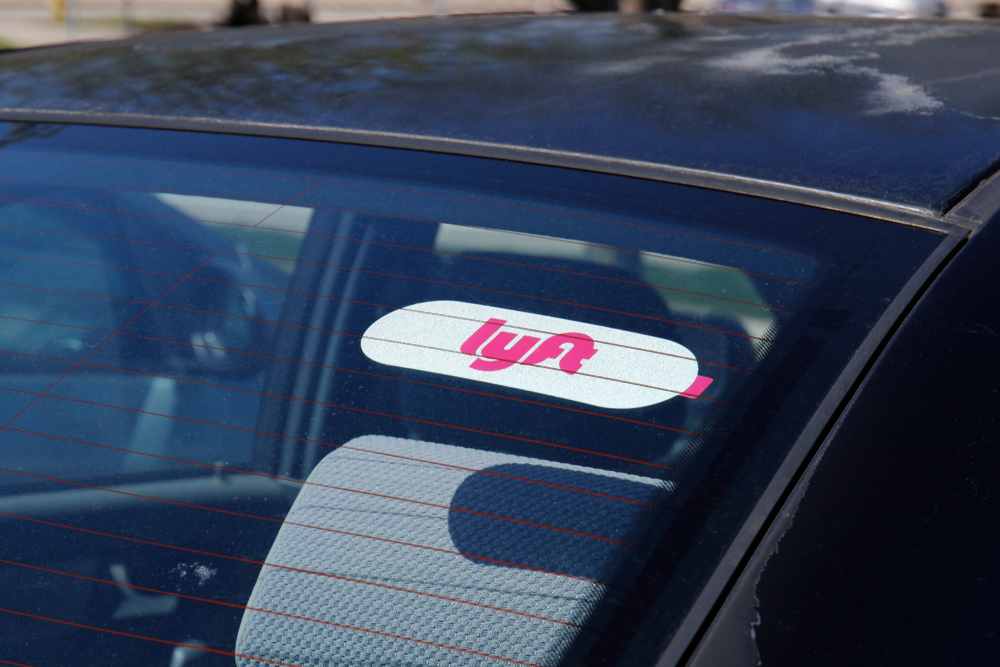 Like Lyft or Blu-Ray, Tumblr and Flickr, all with the intentional dropping of vowels or substituting odd letters. That may help them stand out, but it doesn’t make them any easier to spell.
Like Lyft or Blu-Ray, Tumblr and Flickr, all with the intentional dropping of vowels or substituting odd letters. That may help them stand out, but it doesn’t make them any easier to spell.
Then there are the names that don’t exist – they aren’t actual words but are used as brands.
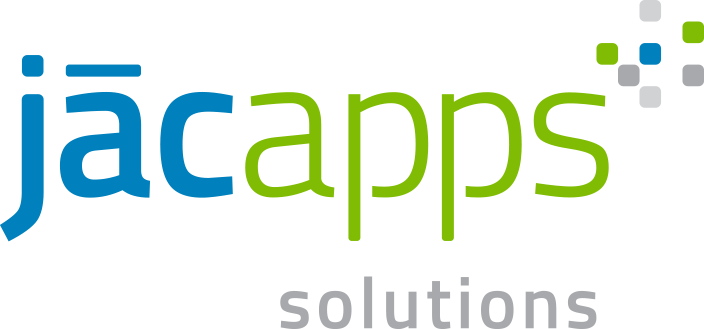 We’ve seen how that confusion both confuses spellers and those who try to announce the company with our own jacapps. I originally chose the name as a connection between Jacobs and apps, hopefully giving our fledgling app company more immediate familiarity. But the mangled mispronunciations over the years have convinced me I might have been guilty of being too clever by half.
We’ve seen how that confusion both confuses spellers and those who try to announce the company with our own jacapps. I originally chose the name as a connection between Jacobs and apps, hopefully giving our fledgling app company more immediate familiarity. But the mangled mispronunciations over the years have convinced me I might have been guilty of being too clever by half.
Rampant JACK-apps spellings even led developer Ben Levy to create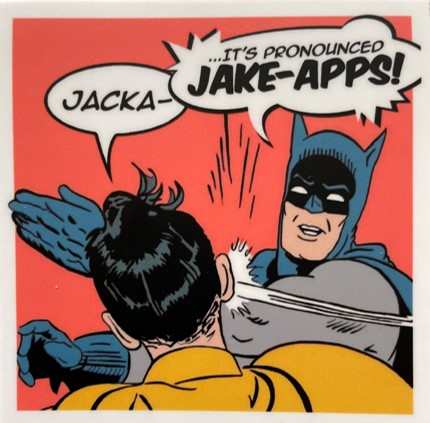 this clarifying cartoon. I’m not sure it worked, but the fact is was compelled to do it tells you something about staff frustration with the “over-creative” brand name.
this clarifying cartoon. I’m not sure it worked, but the fact is was compelled to do it tells you something about staff frustration with the “over-creative” brand name.
At one point, Ben also coined the phrase, “Jacapps rhymes with MAKE APPS.” I’m not sure that one worked either.
But until I read Klara’s article, I never thought about whether consumers would struggle with spelling it. Hmm…
A real life example is Audacy, a word play on “audio.” Early on in the new brand’s life, the brand name was often spelled out when read by a host or in a piece of production. That’s an indicator that consumers were having trouble finding it and that it needed clarification, neither a good thing in a PPM world or when consumers can’t be bothered by having to think up the correct spelling.
The good news for Audacy is that many misspellings show the corrected link or path in most browsers and app stores. But the act of scrolling or looking at the alternatives serves as another “hoop” for consumers as they search for what they’re looking for.
Are they spelling it correctly now? And do spelling clarifications still need to be give on the air? While in Canada for Radio Days North America, I had dinner with a couple of regional broadcasters, mostly unfamiliar with American radio companies.
When the discussion turned to the leading broadcasters, the Audacy name came up, and one of my Canadian guests suggested it was an odd name. I asked her to spell it, and got the “Odyssey” spelling as her answer.
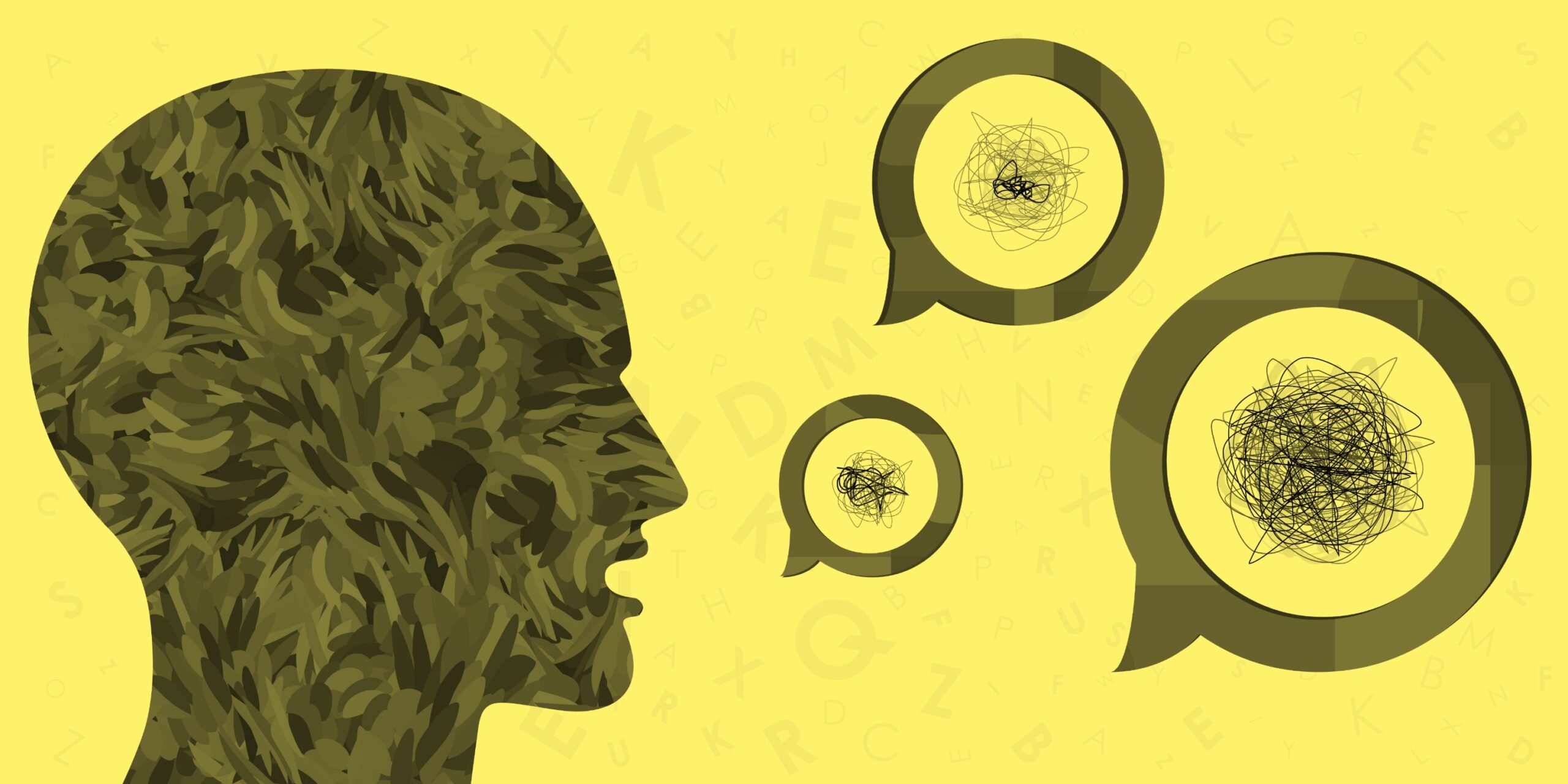 Plugging the name into a search engine usually provides the correct pronunciation, but who’s going to realistically go to the trouble? And then there’s howtopronounce.com which got Audacy right, including the recording.
Plugging the name into a search engine usually provides the correct pronunciation, but who’s going to realistically go to the trouble? And then there’s howtopronounce.com which got Audacy right, including the recording.
As a researcher, of course, these problems are almost always solved in the field. In this case, a curious marketer could schedule simple one-on-one interviews with consumers, asking them to spell any number of real or fictitious companies. You learn in a hurry if you’ve got a clarify issue on your hands. Like distributing a proposed new logo among the staff for feedback, it’s not foolproof but it does give you a quick sense if you’re about to create more confusion with a new look or new name.
The good news for jacapps is that we survived whatever initial confusion was created. The company celebrates its 15th birthday next month, none the worse for wear. But I still grimace when I’m introduced as a speaker or presenter, and the company is part of my bio and they totally botch the name.
Of course, these days, we might want to simply turn to an AI engine like ChatGPT to dream up a new name for an app, radio, or media company. Aside from the legalities, letting the robots do the dirty work might be a good first step.
We live in a world of brands where clarity matters, especially when it comes to spelling/remembering a new brand name.
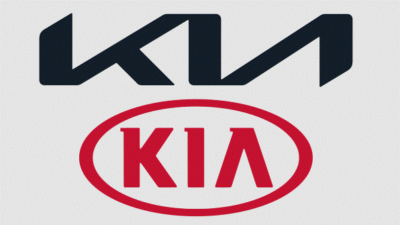 Of course, there’s also the visual aspect of logos, where a mistake can lead to even more confusion and angst. Right, KIA?
Of course, there’s also the visual aspect of logos, where a mistake can lead to even more confusion and angst. Right, KIA?
This might be a good afternoon to test drive a new KN in which I can listen to Audacy.com or download a jacapps app of my favorite station.
Yeesh.
To join us at CES 2025 this January, check out our info sheet here. We’d love to hang out with you in Vegas at this amazing event. – FJ
- What If Radio Tried Something Right Out Of Left Field? - May 9, 2025
- Why Radio PDs Are A Lot Like NBA Coaches - May 8, 2025
- Memo To Radio: We Have Met The Enemy And It Is… - May 7, 2025





Cool column. Audacy has been problematic in my brain from the start. There is the confusion with Odyssey, and (even more difficult for me) the Audacity audio recording platform.
Amd perhaps, the word ‘audacity” itself. Not the assosciation you want for your consumer-facing company to begin with.
I have the same issue as Brad Hill re Audacy, except my issue goes back a couple more years to the Orban ‘Audicy’ digital workstation — the one that evolved from the legendary AKG DSE-7000 from circa 1996 (?).
When I hear “Audacy” (the corporation), I visualize the Orban hardware first. Then my brain catches up.
And it shouldn’t be THAT hard, Alan. Thanks for pointing out what many radio people thought of when they first heard it.
“Keep it Simple, Stupid.”
Thank you Sir Fred. Always great thought provoking information.
1220watx.com CLASSICS!
Thank YOU, Clark, for always keeping it basic.
Reminds me of the time one of our AE’s was looking for a promotion for a new item at Pizza Hut. It was their version of a calzone. He called it a Pee-Zone. Found out it was actually a puh-zone. Too clever indeed.
LOL! Easy mistake to make. The P’Zone was the delicious menu item. The Pee-Zone was located down the hallway to the right.
Ouch!
I have long been convinced that David Field did not consider for even one second that his “clever” unique name wasn’t going to work in his company’s primary medium. I heard from several people here in L.A., not in the business but listeners, who told me that after hearing “audacy.com” on The Wave, typed in what they THOUGHT was the URL … and ended up at a travel agency in Florida.
In my mind, the biggest mistake he ever made … biggest because it caused a disconnect with the listeners, without whom there is nothing to sell the advertising clients.
He may not have liked “Entercom” but I bet no one misspelled it.
The choice aside, K.M., basic research (and you had it in anecdotal form) would have revealed a hearing/spelling problem that was at least addressable. To this day, it is still a problem IMO.
Agreed on both counts, Fred.
The Audacy/Odyssey blunder did make me more aware of the shortcomings of an aural-only medium, and I think perhaps the problem exists more because no one is actually thinking.
(And yes, I have had to tell stations to go “fix” a spot that got on the air with a similar issue.)
As my old TV broadcasting instructor used to teach us, “Write for the ear, not for the eye.” Imagine how much damage could be avoided if we actually did that.
Why managing an artist fell apart 5 years ago. I would not have signed the contract if she-who-shall-remain-nameless hadn’t agreed to find a simpler name than the mash-up of two words she chose. Like Audacy, which always make me think of idiocy, it was even more unpronounceable and would invoke malevolent when I’d show it to biz people I was connecting her with. It took another musician on stage with her at a big gig I flew to in Salt Lake City (her “hometown”) on my own dime, for her to change her mind. That was 5 years ago. She violated a two-year deal in three months and went back to the name you’ve never heard of. “A Rose by any other name” but Rose is an easy word to say and spell. Wish I had seen this back then. Would have shared it.